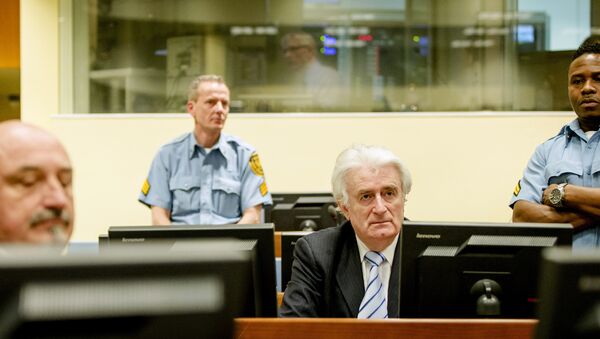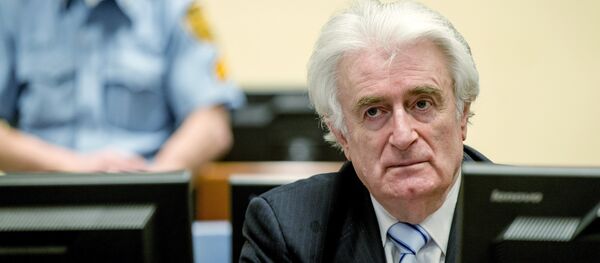Karadzic, who was sentenced to 40 years in jail on Thursday, had been presumed guilty by the ICTY even before being arrested in 2008, Trifkovic claimed.
“The key points in the verdict had been prepared well in advance with previous sentences against General [Radislav] Krstic, when so-called Srebrenica genocide was quasi-legally verified. This is logical outcome of a politicized tribunal with politicized proceedings,” he said.
“This will be used with the previous verdicts as justification for sustained attempts by the enemies of Republika Srpska to delegitimize its existence,” Trifkovic pointed out.
“This is selective justice by tribunal which has a clear brief to provide the Serbian guilt as an attractive justification for political decisions made at the time.”
While judging the former leader of the Bosnian Serbs using ICTY, the West hypocritically turned a blind eye to the conditions of the Bosnia and Herzegovina’s secession from Yugoslavia, an expert underscored.
“The whole show, the Hague tribunal has the task of providing legal justifications for the decisions made by Western political powers in 1990s,” Trifkovic stressed. “Nobody at The Hague’s is discussing the circumstances that led to civil war in Bosnia.”
In 1992, Warren Zimmermann, then-US ambassador in Belgrade, traveled to Sarajevo and urged then-Bosnian leader Alija Izetbegović to reject the EU’s plan aimed to prevent the looming war in Bosnia before the first shot was fired.
“[A]nyone connected with any political structure that is inconvenient to the Western powers can be criminalized [through ICTY]. It’s not the matter of committing real war crimes; it’s the matter of collective guilt because of [what] you do [may] not belong to the ‘right side’ of history.”
The Bosnian War followed the secession of Bosnia and Herzegovina from Yugoslavia. Bosnian Muslims, Serbs and Croats took part in the warfare that lasted for some four years and resulted in around one hundred thousand of casualties.




